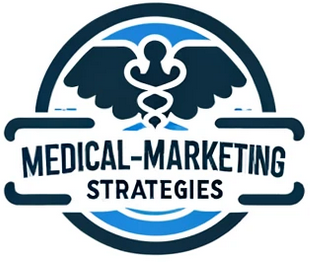Preparing your Medical Practice for AI-powered search.
AI-powered chatbots like Bing’s Copilot and Google’s Gemini are still in their early stages of adoption. But they will fundamentally change how patients research health issues and find local solutions to their problems.
Leading research firms, like Gartner, even predict as much as a 25% drop in Google’s Search volume over the next two years.
Although I don’t agree with the timeline outlined by Gartner, I do agree with the scale. The shift from current Google Search to AI-powered search will be massive – it will just be more gradual, especially when it comes to local search.
Finding the Right Medical Practice Will Get Much Easier
The ability of AI chatbots to sift through mountains of data within seconds will make it dramatically simpler and faster to research local medical practices and medspas.
Let’s take a look at how users can already evaluate a local medical practice with Bing’s Copilot:
Patients can very quickly do things like:
- Find practices that offer a specific treatment
- Select practices that openly offer pricing on their website
- Compare public review and ratings (within seconds)
- Compare schedules
- See which practices offer payment plans
- and much more
All of this can already be done in just minutes, using an AI chatbot that wasn’t even specifically designed for local consumer search.
In just a couple years, this process will be dramatically improved and much more intuitive.
Information Will be More Important than Keywords
When AI-powered local search becomes more mainstream, it will become much more important to include relevant, contextual information on your website (as opposed to keywords).
Up to now, keywords were simply the best proxy for information. It was the only way to help Google categorize your site and help it understand what treatments you offer, so that it can show it to relevant users.
Keywords will become less relevant for AI-based search, because the reasoning capabilities of AI chatbots will be able to derive more nuanced meaning, beyond what keywords can provide.
The goal of AI chatbots will be to help the patient find the best medical practice for their specific needs. This means that the chatbots will evaluate a lot more datapoints, to show the most relevant results:
- Pricing for specific treatments
- Hours of operation
- Financing options
- Publicly available ratings
- Distance to the user’s location
- Before and after photos
- and more
Medical practices will need to take more proactive measures to make this information easily accessible.
Transparent Pricing Will Become Vital
People want to know the price quickly, especially for “would-like-to-have” procedures, where provider expertise is viewed as less important, and the price is the driving factor.
Right now, they can still overlook the lack of transparent pricing by being offered free consultations. But in the near future, this may no longer be enough.
When many practices in your area start offering transparent pricing, to increase their visibility in AI-powered search, you may have little choice but to follow suit.
Profiles on Reputable Websites Will be a Must
AI chatbots will no longer consider just the information on your website when evaluating whether to show your practice in results. They will also look to data about your practice on third party websites like Yelp, RealSelf, Healthgrades, and others.
Having strong profiles on third party sites (with consistent information across all of them) will become crucial, at least for organic AI search.
Steps You Can Take Now
I think that Gartner’s estimate that Google Search will lose 25% of market share in less than two years is extremely optimistic. It all comes down to habits; those who have been using Google Search for the last two decades will adopt AI assistants at a slower pace.
One big proactive step that medical practices can do now is to focus on things that take a longer time to build. Things like their reviews and their online reputation.
This means creating profiles on third party platforms today, so that in a few years you can have a strong presence, with great reviews.
It also means that you have to be more proactive about 1) asking patients for reviews and 2) addressing negative reviews, to maintain good ratings.
Even if the AI search transition ends up slower than expected, having excellent reviews and a great online reputation will still be a great asset, regardless of how people search for you.
